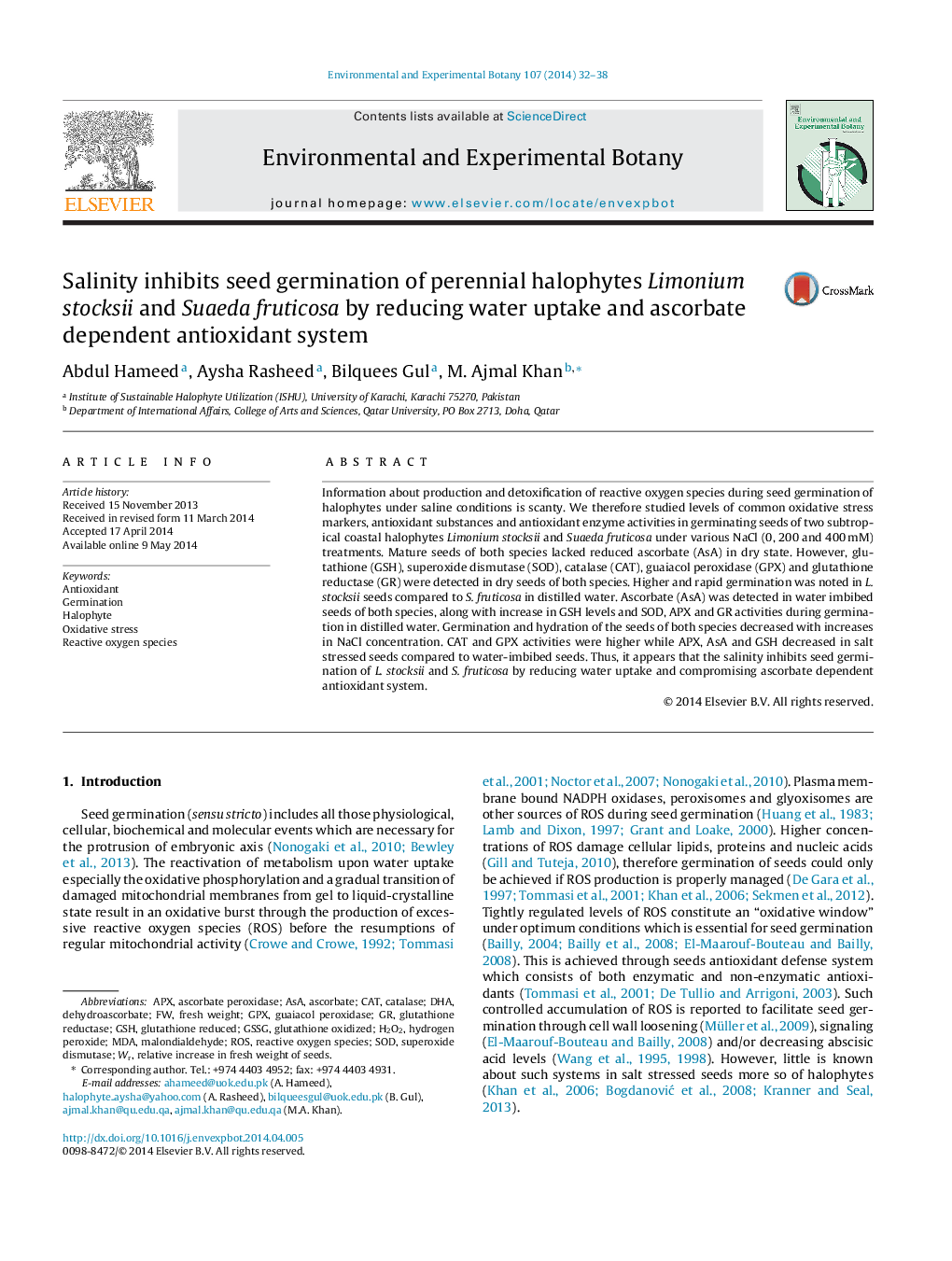| Article ID | Journal | Published Year | Pages | File Type |
|---|---|---|---|---|
| 4554393 | Environmental and Experimental Botany | 2014 | 7 Pages |
•Dry seeds of Limonium stocksii and Suaeda fruticosa lacked reduced ascorbate (AsA).•AsA peaked at the time of radicle protrusion in water-imbibed seeds of both species.•Salinity inhibited germination, water uptake and AsA dependent antioxidant system.
Information about production and detoxification of reactive oxygen species during seed germination of halophytes under saline conditions is scanty. We therefore studied levels of common oxidative stress markers, antioxidant substances and antioxidant enzyme activities in germinating seeds of two subtropical coastal halophytes Limonium stocksii and Suaeda fruticosa under various NaCl (0, 200 and 400 mM) treatments. Mature seeds of both species lacked reduced ascorbate (AsA) in dry state. However, glutathione (GSH), superoxide dismutase (SOD), catalase (CAT), guaiacol peroxidase (GPX) and glutathione reductase (GR) were detected in dry seeds of both species. Higher and rapid germination was noted in L. stocksii seeds compared to S. fruticosa in distilled water. Ascorbate (AsA) was detected in water imbibed seeds of both species, along with increase in GSH levels and SOD, APX and GR activities during germination in distilled water. Germination and hydration of the seeds of both species decreased with increases in NaCl concentration. CAT and GPX activities were higher while APX, AsA and GSH decreased in salt stressed seeds compared to water-imbibed seeds. Thus, it appears that the salinity inhibits seed germination of L. stocksii and S. fruticosa by reducing water uptake and compromising ascorbate dependent antioxidant system.
